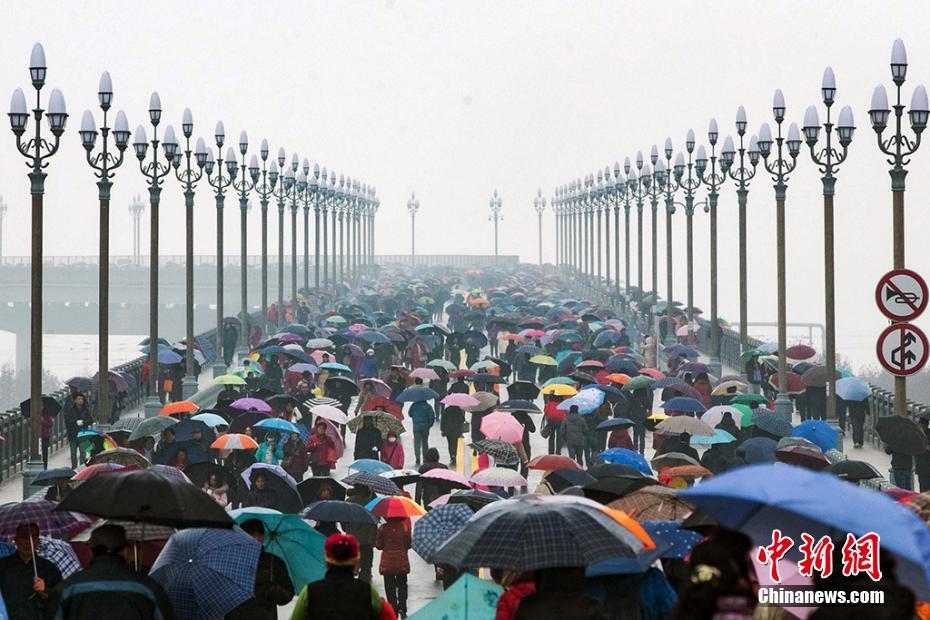A Low, Dishonest Decade
The unlearned lessons of the 2008 meltdown From poster at Occupy Wall Street, October, 2011. | Kurt Christensen
From poster at Occupy Wall Street, October, 2011. | Kurt Christensen o
l
u
m
n
s
It’s been ten years now?since the American economy nearly pitched itself carelessly into the abyss, taking a great deal of the rent-collecting structure of neoliberal capitalism along with it. As our thought-leading elite begins taking stock of the Great Recession’s tangled legacy, we do well to pause amid the great tax-slashing, trade-battering, wage-stagnant Guignol of our Trumpified political economy, and marvel at just how epically oafish our leadership class is when it comes to the simple processing of elementary information and market trends.
There is, to begin with, the whole sad mobbed-up social mythology of austerity as the panacea of first resort in all imaginable circumstances. In the latter half of 2008, as Wall Street became a wind tunnel of toxic, overleveraged debt, all our most sober founts of economic wisdom concurred that we couldn’t embark on the Keynesian program of pump-priming that the shell-shocked American economic order desperately needed; no, this crisis was a moment for inflation hawks and assorted other ghouls to close ranks and issue stern rebukes of the economic mayhem wreaked by financial stimulus. As it played out, two leading members of this austerity chorus, Carmen Reinhart and Kenneth Rogoff, were found to be grievously distorting the actual condition of the economy while also committing a basic misreading of their own Excel spreadsheet that invalidated much of their argument out of the gate. Numbers purporting to show a 1 percent decline in growth under regimes of Keynesian demand-stimulation actually showed healthy annual increases in growth.
Analytic myopia was a veritable epidemic amid the radically altered conditions of the Great Recession. Supply-side alarmists on the right saw Obama socialism lurking.
Enjoyable as it is to call out a pair of Harvard austerians for their failure to add properly, this sort of analytic myopia was a veritable epidemic amid the radically altered conditions of the Great Recession. Supply-side alarmists on the right, of course, saw lurking Obama socialism in each wanly incremental measure seeking to arrest at least some of the hemorrhaging. They eagerly seized on a remark from incoming Obama Chief of Staff Rahm Emanuel—of all the unlikeliest socialist villains in the world—noting that “you never want a serious crisis to go to waste.” For Fox News-primed audiences, this was the Marxist equivalent of an Olly-Olly-in-Free call for the long-dormant Leninist cell atop the Democratic Party’s power elite. In reality, though, Emanuel delivered this aside to a CEO Council convened by The Wall Street Journalto learn just how solicitously the incoming Obama administration might do the group’s collective bidding. And Emanuel, himself a former investment banker, didn’t disappoint; in his extended reply, he invoked the sacred New Democrat specter of bipartisan collaboration in the interests of the nation’s hard-used business elite. Citing the precedent of the early seventies oil shortages, he suggested that the country’s leaders overlooked the opportunity to recast energy policy around any goal apart from “cheap oil”; in the same vein, the financial meltdown proffered the chance for the worthies on hand to think big for a change:
This crisis provides the opportunity, for us, as I would say, the opportunity to do things that you could not do before. The good news, I suppose, if you want to see a silver lining, is the problems are big enough that they lend themselves to ideas from both parties for the solution.
So much, in other words, for the firebreathing opportunism of social-democratic revolutionaries; the main such moment of visionary crisis management proved to be an anemic health care overhaul written largely by once-and-future insurance-industry lobbyists, and even that didn’t draw a scintilla of bipartisan support. Indeed, when Obama himself convened the fraternity of Wall Street malefactors who’d produced the great calamity of 2008, the bankers in question were quite skittish about what lay in wait. Now that the federal government was propping up their moribund business models Weekend at Bernie’sstyle, Obama might declare a one-hundred-day banking holiday and completely rebuild the financial industry from the ground up, as FDR famously did at the outset of the New Deal. At a minimum, as the central major investors left standing, federal regulators might simply vote their shares in the Wall Street properties they controlled, and direct them to implement their own aggressive bailouts of distressed mortgage-holders—the “cram-down” plan, in the Clash-like lexicon of financial regulators.
But again, the C-suite banking class need not have worried. Obama never exacted any serious reforms for the new millennial Money Power, or floated any pledges of future discipline for its masters. Indeed, he assured them that “my administration is the only thing between you and the pitchforks” and if they’d merely consent to the modest brands of stimulus and financial reform his administration would duly draft in consultation with them, why, then the balmy dreams of bipartisan, business-driven financial oversight would gently waft once more into the foreground of D.C. policymaking.
And sure enough, within the generous latitude afforded by the Dodd-Frank overhaul of financial industry rules (still another dishwater reform measure advanced by industry-captive lawmakers), major banks soon returned to minting out shaky subprime debt-instruments while household debt soared once more into the outer ether, in no small part because of the predatory student loan bubble.
Major banks soon returned to minting out shaky subprime debt-instruments while household debt soared once more into the outer ether, in no small part because of the predatory student loan bubble.
But these familiar, dismal trends typically escaped notice of our media sachems and political leaders alike. No, the main story to emerge out of the immediate wake of the 2008 crisis wasn’t anything so dreary as the compromised, donor-driven state of political inquiry or the systemic looting of the country’s dispossessed middle class. It was, rather, the rise of the Tea Party—the Koch-funded, Palin-inebriated scourges of runaway socialism. In much the same way that we’ve forgotten that Rahm Emanuel crafted his thoughts on crisis management for an audience of crisis-generating CEOs we’ve now largely forgotten that the Tea Party rebellion was touched off by a dayside CNBC political commentator named Rick Santelli.
Santelli took to the floor of the Chicago-based futures exchange, the CME Group, to deride planned Obama rescue measures not because they would permit the Jamie Dimonds and Lloyd Blankfeins of the world to continue bleeding the ordinary wage-earners and home-owners of the country dry. No, as Santelli mugged operatically for the cameras, he singled out the civic perfidy of debt-ridden mortgage holders for his righteous scorn. “This is America!” he barked out to his comrades on the trading floor. “How many of you people want to pay for your neighbor’s mortgage that has an extra bathroom and can’t pay the bills?” It was then he uttered the world-historic call to arms, “We’re thinking of having a Chicago Tea Party in July”—presumably to toss bathroom fixtures into Lake Michigan. Congratulated by then-CNBC talking head Wilbur Ross (now Trump’s commerce secretary) for “your new incarnation as a revolutionary leader,” Santelli concluded by invoking the Founding Fathers and asserting “what we’re doing in this country now is making them roll over in their graves.”
In that ballyhooed set piece, you can see the Trump movement in nearly every embryonic facet: first off, we have a hackish no-talent loudmouth egging on a crowd of well-heeled profiteers in the paper economy to imagine themselves as avatars of a vanishing Real America. Then, of course, there’s the ready conflation of economic decline with ethnic-cum-ideological otherness; “Cuba used to have mansions and a relatively decent economy,” the aggrieved Santelli announced, in a sepia-toned evocation of the Batista years as a sequel to Gone With the Wind; but, wouldn’t you know, “they moved from the individual to the collective, and now they’re driving ’54 Chevies.” But the most striking achievement of Santelli’s rant was the social world it managed to efface by urging mortgage-holding neighbor to turn on mortgage-holding neighbor; still once more, America’s predator class was simply factored out of the discussion, and placed decorously out of reach of any intruding pitchfork. Here Santelli and the Obama White House he was deriding were in near-perfect accord—and in this single strategic act of omission, you can behold the shitty, bigoted, dishonest political world we’ve all been condemned to live in a decade later.


















